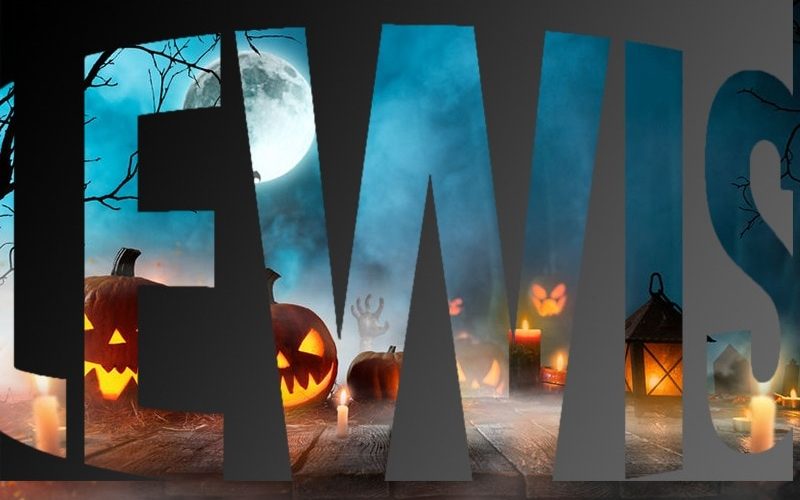Halloween
is one of my favourite festivals. I have many fond childhood memories of carefully choosing my costume, carving elaborate pumpkin designs and waiting excitedly for trick-or-treaters to come to the door.
As I’ve got older, the way I celebrate may have changed but without fail, every 31st October, I still wake in a state of feverish anticipation.
For me, autumn and winter festivals are as important now as they have been, as they add shape, meaning and excitement to the otherwise long dark days.
In this post, I’ll explore the origins of the festival, tracing its development over time to the over-commercialised event that we have today. I’ll also look at some of the controversies that have tainted the festival in recent years.
If you wish to discover more about the history of this age-old festival and how we celebrate it here in Britain then read on.
The Origins of Halloween
Around 2000 years ago, the area of land that we now call Britain was inhabited by a people called the Celts. On the 31st of October, the Celts celebrated a festival called Samhain. The day marked the end of the harvest period and the beginning of the long, dark winter.
It was thought that on this day the lines which separated the living from the dead would become blurred. This meant that the Celts took measures to protect themselves from the spirits of the dead. The Celtic priests, known as Druids, would lead ceremonies in which great bonfires were built to keep away any evil spirits.
During this period, the people of Britain believed in many different gods and goddesses. Their beliefs were linked inextricably with the natural world. In the 1st century AD, however, Christianity began to infiltrate Britain. This began as a slow process but was sped up by the Augustine mission, which was sent by Pope Gregory the Great in 596. The mission aimed to convert Britain’s Anglo-Saxons to Christianity.
Christianity has many of its own festivals and traditions. One such event is All Hallows’ Feast (also known as All Saints Day), which was previously celebrated in May, during which Christians remember people who have died for their beliefs. Pope Gregory moved the festival to the 1st of November in what is believed to be an attempt to replace the Celtic festival.
Samhain, therefore, became known as All-Hallows-even. This name transformed over time, eventually becoming the Halloween which we know today.
Modern Day Celebrations
Trick or Treating
For many children, going trick or treating is a highlight of the day. As darkness falls, children dress up in costumes and head out into the town. They knock on the doors of their neighbours. As the neighbours answer the door, the children shout ‘TRICK OR TREAT’, meaning give us sweets or we’ll play a prank on you. Most people opt for the latter and hand out sweets to the children to put in their buckets.
This is all from second-hand knowledge, as although the practice of trick or treating in Britain is fairly widespread, my parents disapproved of it. Rather understandably, they didn’t feel that coercing neighbours to give us sweets would be particularly appropriate, particularly as we lived in an area of elderly people. The closest that my brothers and I came to taking part was the one time we were allowed to go to a friend’s house and give them sweets. Unsurprisingly, this didn’t have quite the same magic for us.
Like Halloween itself, the practice of trick or treating has ancient roots. During medieval times, poor children would knock on people’s doors asking for soul cakes. Soul cakes are small round cakes filled with spices and raisins. In return, the beggars would pray for the souls of their dead friends and relatives.
Apple Bobbing
Although, as children, we weren’t allowed to go trick or treating, my parents more than made up for it by allowing us to throw amazing Halloween parties. After school, we’d decorate the house with ghoulish decoration, carve pumpkins to put out in the front porch, buy lots of Halloween themed sweets and cakes and dress up in our costumes.
Once our friends arrived, we’d play Halloween games. My favourite of these games was always the apple bobbing. In this game, apples would be added to large buckets of water. The apples float at the top. In modern-day apple bobbing, the challenge is to grab an apple out of the water, using only your teeth.
The origins of apple bobbing are hotly debated. Some historians claim that the practice was introduced by the Romans. The Romans worshipped many different gods and goddesses. One such goddess was Pomona, the goddess of fruits and trees, whose symbol is an apple. Pomona was known for her great beauty and fertility. This led to an early version of apple bobbing game, in which the first to catch an apple, was said to be the first to be married.
Modern Day Controversies
Over commercialisation
Like with many modern-day festivals, some people argue that Halloween has lost all meaning in the modern world. What was once an expression of beliefs and faith, is now an excuse for big companies to make a bit more money. In the run-up to Halloween, shops stock up on Halloween decorations, costumes, pumpkins and themed sweets. For parents, there’s pressure to make sure their children have a good costume for themed school days and parties.
However, although all of these things are true, I still believe that Halloween has a purpose. We may no longer experience hardship to the same degree as in the past, but winter for many is still a difficult time. Modern life can always be stressful but when you add in cold and darkness to the mix, it can make it that little bit worse. Festivals like Halloween, Bonfire night and Christmas ease people into the winter period and allow us to relax, have fun and forget all of our worries, even if just for the day.
Plastic waste
In recent years, people have become more conscious of the amount of plastic waste they’re producing. Change has started to take place. This has happened slowly at first but it is now beginning to gain momentum. For example, In the UK, many cafes now only use paper straws and cutlery instead of plastic ones, as they would have in the past.
As you can imagine, between the cheap decorations and costumes, Halloween produces a lot of plastic waste. This is made worse by the fact that many people buy items for the event, only to throw them away in the next few days. An investigation by the environmental charity called Hubbub found that 2000 tonnes of plastic waste will be generated by Halloween outfits this year.
Obviously, this situation can’t continue. I don’t believe that people will stop wanting to decorate their houses or wear costumes over the holiday, but certainly, creative ideas will be needed to find more environmentally friendly options.
Conclusion
Halloween is a fantastic festival. It’s fun, it’s silly and it gives us something to look forward to as we head into the winter months.
In this post, I have given an overview of the British version of the holiday, or at least how I’ve experienced it, but Halloween is celebrated all over the world in different forms. Comment below to tell us how you celebrate Halloween in your countries.












Cool blog. I love it! Great pic!
Thank you 🙂